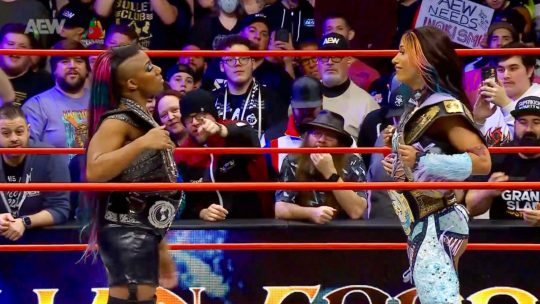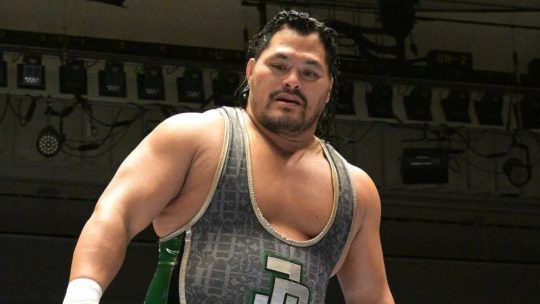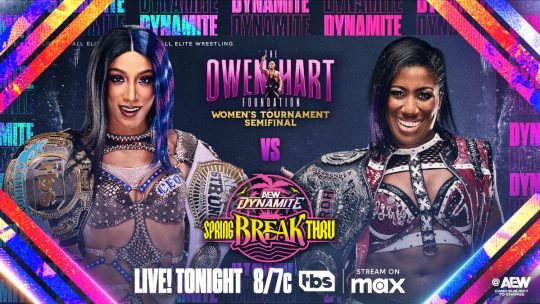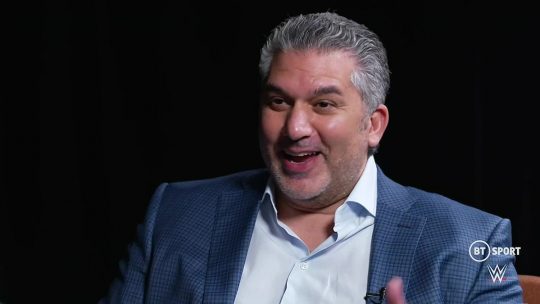As noted before, a lawsuit was filed this past October against WWE, WWE’s parent company TKO Group, former WWE Chairman Vince McMahon, and Linda McMahon on behalf of the survivors of the infamous WWE Ring Boys scandal in 1992. Additional survivors recently joined as plaintiffs for the lawsuit following the Maryland Supreme Court upholding the Maryland Child Victims Act as being constitutional this past February.
PWInsider’s Mike Johnson reported that WWE, TKO, Vince McMahon, and Linda McMahon all filed motions on Monday before the U.S. District Court District of Maryland (Baltimore) based on recent court records.
Johnson reported that Vince’s motion argues that the court has no “such jurisdiction here. As a nonresident who is not domiciled in Maryland, there is no general personal jurisdiction over McMahon, and Plaintiffs fail to plead any facts to satisfy Maryland’s long-arm statute or the due process requirements necessary to assert specific personal jurisdiction over McMahon. Indeed, Plaintiffs do not specify a single act or omission—tortious or otherwise—committed by McMahon in Maryland.” McMahon also argues that since he lived in Connecticut, they have no way to establish that he could have lived in Maryland and full under the court’s jurisdiction.
McMahon’s filing also is claiming that the lawsuit fails to state a claim against him and therefore it should be dismissed. McMahon is also claiming that none of the Plaintiffs claimed they have met him with the exception of one, who did not meet him in Maryland.
McMahon’s filing also stated “The Complaint likewise neglects to plead a general duty of care that McMahon purportedly owed to Plaintiffs. To owe a general duty, the complainants must allege facts establishing that their injuries were “reasonably foreseeable” given the defendant’s prior knowledge of the dangerous condition that caused the injury. Here, Plaintiffs do not sufficiently allege that McMahon had knowledge, constructive or otherwise, that Mel Phillips (“Phillips”), a nonparty who has been deceased for more than a decade, posed a danger before the Plaintiffs allege that they were abused. Plaintiffs thus fail to properly plead that their injuries were reasonably foreseeable. The Complaint attempts to manufacture such knowledge by spouting a broad catalog of negative press, unfounded opinions, speculation, and multi-level hearsay from a hodgepodge of characters (many of whom are deceased). These accounts expound predominantly upon unrelated alleged scandals from the past thirty years of World Wrestling Entertainment, LLC’s (“WWE”) history—all of which post-date the alleged conduct by Phillips in this case. To the extent that a limited number of the allegations arguably imply such knowledge in the requisite timeframe, they lack the factual support, plausibility, consistency, and definiteness required to state a claim.”
In regards to WWE and TKO’s motions, Johnson reported that they also requested for the lawsuit to be dismissed against them for similar lack of jurisdiction and failure to state a claim against them which relief can be granted.
WWE and TKO’s filings also argues “Specifically, Plaintiffs allege that they are former volunteers who were invited by a now-deceased ring announcer named Mel Phillips to attend, and asked to assist with errands for, wrestling shows, some of which occurred in Maryland. Plaintiffs further allege that Phillips sexually abused them. They claim Defendants should be held liable to them based on Defendants’ allegedly negligent hiring, training and retention of Phillips. Plaintiffs’ claims must be dismissed because neither WWE nor TKO is subject to personal jurisdiction in this Court and, in any event, Plaintiffs do not properly allege the existence of any legally cognizable duty of the Defendants to sustain their negligence claims.”
Johnson reported that McMahon’s filing also includes a response to his alleged knowledge of Mel Phillips actions against WWE ring boys.
“Plaintiffs allege that Phillips was once spotted in a car performing a sexual act on a young boy, and that McMahon was told about it.
Plaintiffs, themselves, do not have any personal knowledge of this supposed incident— rather, they allege that in 1992, after the Ring Boys scandal came to light, two wrestlers (both since deceased) alleged that they heard that it had happened.
According to the Complaint, one of the wrestlers retroactively claimed that he was present at the venue the night of the alleged incident; Plaintiffs fail to mention, however, that in the same TV appearance, the wrestler admitted that he did not personally see the alleged act, observe anyone reporting it to McMahon, or hear whatever was purportedly told to McMahon. The other wrestler did not even work for the WWE in 1982-1983 when this incident allegedly took place.
Plaintiffs cannot plausibly claim that their alleged injuries were rendered “reasonably foreseeable” based entirely on unsupported allegations made by two deceased nonparties, both of whom had their own grievances against the McMahons and the WWE, as to an event they did not witness, and on which they offered conflicting, unspecified details placed vaguely into an expansive timeframe of a number of years from a decade prior. McMahon has consistently and vehemently denied those allegations for 30-plus years, and there is no basis in law or fact for the Court to credit them.
Plaintiffs’ remaining notice allegations fare no better. Plaintiffs allege that in 1992, McMahon “confessed to New York Post columnist, Phil Mushnick, that he and Ms. McMahon knew of Phillips’s ‘peculiar and unnatural interest’ in boys for years before they temporarily fired him for it in 1988.” This allegation overreaches and misrepresents the Complaint’s own sources: Mushnick’s March 1992 New York Post article (which did not attribute McMahon’s supposed knowledge to any specific year), and Mushnick’s 1993 deposition (in which he merely claimed that McMahon had known “for some time”). Plaintiffs cannot brandish Mushnick’s tabloid soundbite ad nauseam throughout the Complaint and misattribute it to earlier and earlier timeframes in a contradictory and conclusory fashion to gin up a plausible claim. See, e.g., (alleging that McMahon “admitt[ed] that he was aware, at least as early as the 1980s, that Phillips had a “peculiar and unnatural interest in young boys”); (alleging that “Defendants’ admission of knowledge” of Phillips’s “peculiar and unnatural interest” in young boys “pre-dated Phillips’s abuse of Plaintiffs in this case”) (emphasis added). The Court need not accept as true pleadings that “are contradicted either by statements in the complaint itself or by documents upon which its pleadings rely, or by facts of which the court may take judicial notice.” For these reasons, Plaintiffs have failed to plausibly allege McMahon had actual or constructive knowledge prior to the alleged abuse in this case, a legal requirement to establish that their injuries were reasonably foreseeable such that any duty could have been owed to them.”
Johnson reported that WWE and TKO’s filing also argued that the claims against McMahon fail to state their case against him as the WWE (WWF) owner at the time and the Plaintiffs have a “Failure to Plausibly Plead a Successor Liability Theory” and by law, in the Fourth Circuit, “a corporation that acquires assets of another does not also acquire its liabilities, except where: (1) the successor expressly or impliedly agrees to assume the liabilities of the predecessor; (2) the transaction may be considered a de facto merger; (3) the successor may be considered a ‘mere continuation’ of the predecessor; or (4) the transaction is fraudulent.” The filing also argued that the Plaintiffs have made “barebone” statements about WWE under TKO Group being the same entity and they have no proven that to be the case. It was stated that this very lawsuit filing itself proves that World Wrestling Entertainment, LLC nor TKO existed during the time period where the allegations took place.
In regards to Linda McMahon’s filing, Johnson reported that Linda also argues that the court “fails to have jurisdiction over her and the McMahons renting an apartment in Maryland from 1970-1972 is not enough to warrant jurisdiction as she left Maryland “50 years ago.” Linda also claimed that the Plaintiffs have not done enough to prove she would fall under Maryland jurisdiction and none of their allegations “rise” as a result of any activity by her in Maryland.
Linda’s filing also stated that the lawsuit does not “specifically alleges an employment relationship with WWE, let alone with Ms. McMahon” and the Plaintiffs fail to show that Linda could have foreseen anything.
Linda’s filing also stated “To be clear, Ms. McMahon does not concede that she was Phillips’s employer. But if Plaintiffs are unable to establish a duty owed to them by WWE arising from the alleged foreseeability of Phillips’s misconduct while employed by WWE, they certainly cannot establish such a duty owed to them by Ms. McMahon.”
Linda’s filing also stated that the Plaintiffs “allege nothing to suggest that Ms. McMahon—or WWE, for that matter—stood in loco parentis with minors who assisted in ring setup for wrestling shows. Plaintiffs do not (and could not) allege that while at WWE events, Ms. McMahon exercised any control over them. “Unlike the situation with children who must attend school,” any minors who attended WWE events could “leave the event at any time without sanction” and without Ms. McMahon “having any right to stop them.””
Linda also claimed that there is no allegation that any of the alleged acts occurred at times and places when she was in position to control Phillips or had assumed responsibility for the care of the Plaintiffs.
Linda’s filing also claimed that “In addition, this Court should dismiss any portions of Plaintiffs’ claims premised on alleged negligent hiring or supervision of Terry Garvin or Pat Patterson. The Complaint alleges that Garvin and Patterson committed acts of abuse. But Plaintiffs do not plead, with any specificity, that Garvin or Patterson abused these Plaintiffs. The existence of an injury, like the existence of a duty, is an indispensable element of any negligence claim.”

 AEW: Mercedes Mone on Athena Being One of Greatest Women’s Wrestlers of All-Time, Brian Cage Underwent Knee Surgery, Bear Bronson on His Current Absence “Almost Feels Like I’m Paying For Someone Else’s Crimes”
AEW: Mercedes Mone on Athena Being One of Greatest Women’s Wrestlers of All-Time, Brian Cage Underwent Knee Surgery, Bear Bronson on His Current Absence “Almost Feels Like I’m Paying For Someone Else’s Crimes” Jeff Cobb Leaving NJPW, IWGP Tag Titles Vacated
Jeff Cobb Leaving NJPW, IWGP Tag Titles Vacated New Day vs. War Raiders for WWE World Tag Titles Match Set for WWE WrestleMania 41
New Day vs. War Raiders for WWE World Tag Titles Match Set for WWE WrestleMania 41




